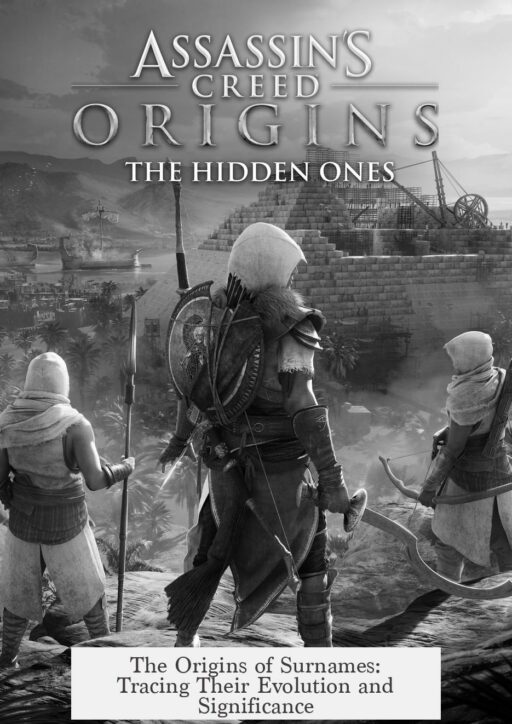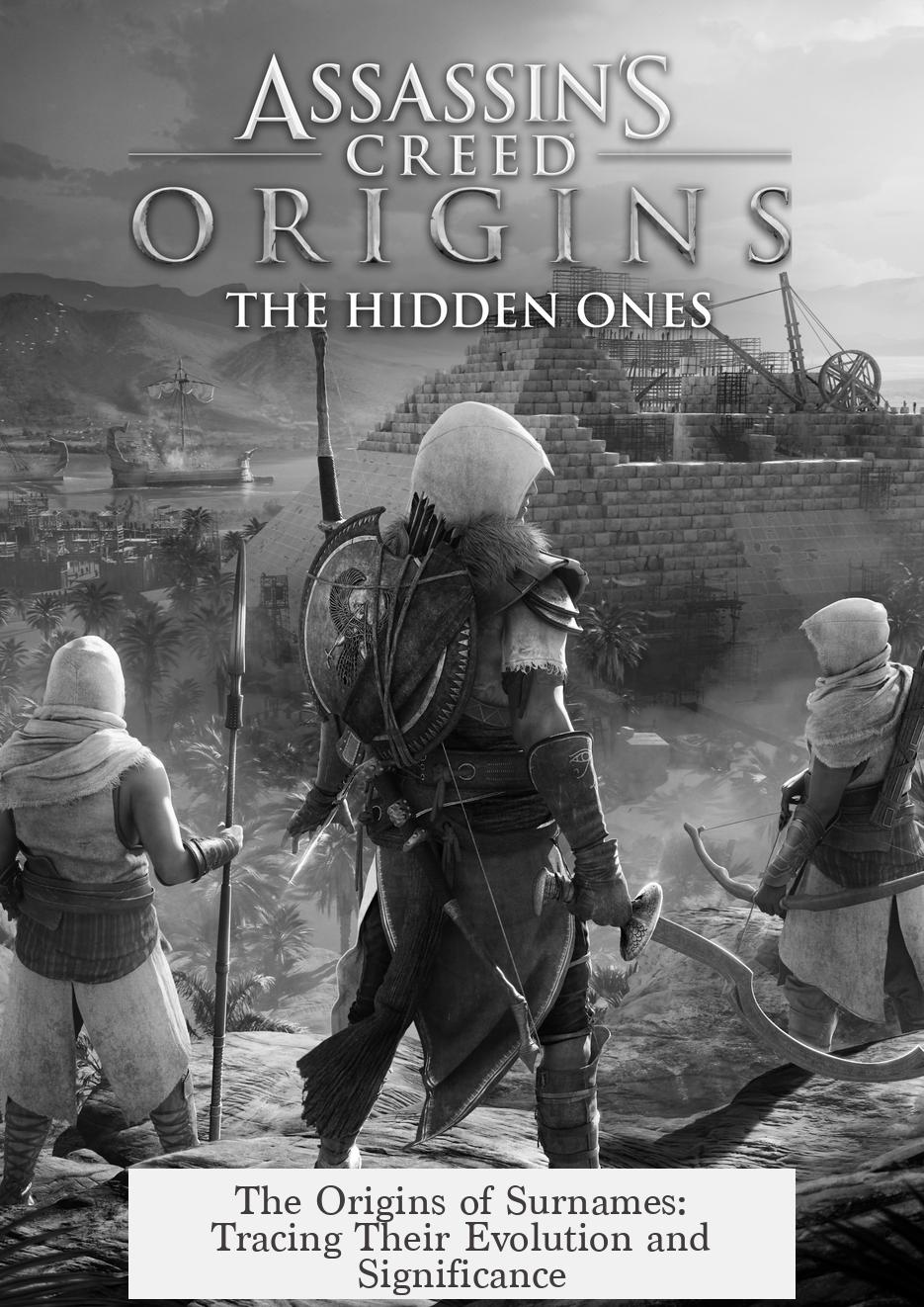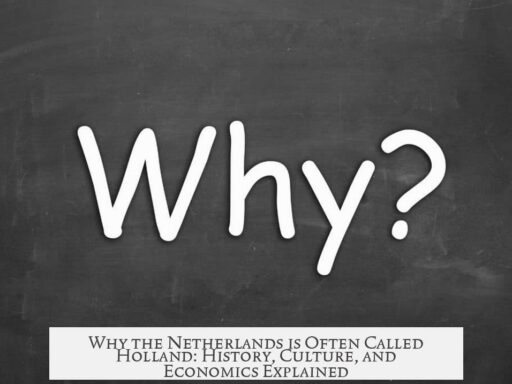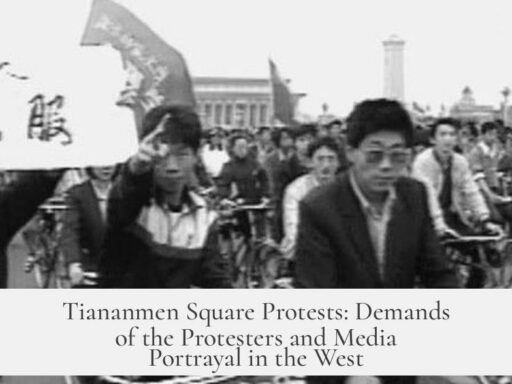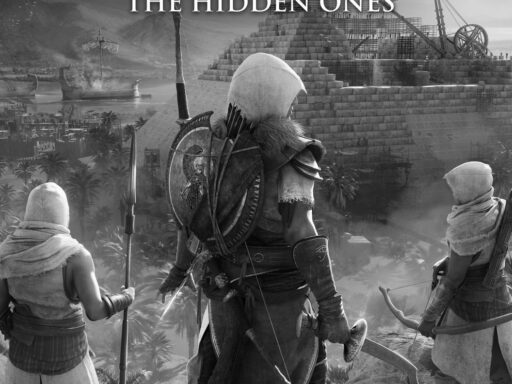Surnames originated primarily to distinguish individuals within growing populations where single names became insufficient. In northwestern Europe, surnames began as descriptive tags referring to family lineage, occupations, locations, or personal traits. The practice became legally mandated in England during the 1200s to aid taxation and administration. Different cultural regions developed unique surname patterns, reflecting family customs, social organization, and language.
Before surnames, many societies used only given names because populations were small, and one name sufficed. As communities grew and people moved, the need for distinguishing individuals increased. For example, multiple people named “Bob” required additional identifiers. Early on, people added descriptive phrases, like “Bob, son of John” or “Bob from the church village.” Over time, these qualifiers shortened and became hereditary surnames, such as Johnson, Archer, or Churchill.
In northwestern Europe, the first surnames often came from four major categories:
- Patronymic origins: These derive from a father’s name with suffixes or prefixes indicating descent. Examples include Johnson (son of John), MacDonald (son of Donald), and the Welsh ‘ap Rhys’ becoming Price.
- Place names: Surnames reflect geographical origin or residence, such as German “von” or Dutch “van” meaning “of/from” a place. Names like Van den Bosch (of the forest) or Churchill (church hill) illustrate this pattern.
- Occupational names: These denote professions, such as Smith (metalworker), Schumacher (shoemaker), or Cantor (singer in Jewish tradition).
- Descriptive names: Surnames based on physical traits or characteristics like Strong, Small, Gros, Petit, de Groot (the Great), or de Jong (the Young).
Patronymics are especially common and varied. For example, Scandinavian countries used changing surnames per generation, like Johnson or Johnsdottir (daughter of John). The British Isles have Fitz-, O’-, or Mac- prefixes indicating “son of.” Welsh names contracted “ap” (son of) into surnames such as Price (from ap Rhys).
Place-related surnames often came with particles denoting origin or nobility, like German “von,” French “de,” or Italian “di.” These indicated family seats, land ownership, or noble lineage. Dutch and Belgian surnames use “van” similarly, but it does not imply nobility.
In non-European cultures, surname traditions differ considerably:
- Chinese surnames often represent clans rather than individuals, with a limited number of common surnames. Some derive from places or occupations. Two-character surnames exist though are rare today.
- Japanese surnames typically describe natural or geographic features, like Takahashi (“tall bridge”).
- Korean surnames relate to clans with significant cultural importance. Many people share a few common surnames like Kim or Lee, linked to distinct clan branches.
- Middle Eastern and Southeast Asian Muslims traditionally use patronymic naming systems (bin/binti meaning “son/daughter of”) rather than fixed surnames.
Surnames became legally required as governments extended their control and taxation systems. In England, laws in the 13th century mandated surnames to identify individuals for tax records and administration. This trend reflects broader efforts by states to organize populations.
The adoption of Jewish surnames in Europe often happened later, in the 18th century, sometimes imposed by authorities and sometimes linked to social pressures and antisemitism. Names like Cohen and Levi indicate priestly heritage. Others were given or adopted based on professions, places, or even mockery.
Surname fluidity persisted in some regions until modern times. For example, Norway allowed siblings to bear different surnames based on fathers or towns until World War II. Some immigrant groups received new surnames upon entering countries like the United States, often changing or simplifying original names at Ellis Island.
There are gender-related surname variations in certain cultures. In Czech Republic, female surnames often add “-ova” to the male form. This modifies surnames to indicate gender distinctly.
| Surname Type | Examples | Regions/Cultures |
|---|---|---|
| Patronymic | Johnson, O’Donald, Price | Europe, Middle East |
| Place-based | von Vogelweide, Van den Bosch, di Rossi | Germany, Netherlands, Italy |
| Occupational | Smith, Schumacher, Cantor | Western Europe, Jewish |
| Descriptive | Strong, Petit, de Groot | Europe |
| Clan names | Kim, Lee, Ma | Korea, China, Muslim China |
Overall, surnames reflect historical population growth, social organization, language, and legal needs. Their origins are practical—identifying individuals in larger communities. They evolved into markers of family, place, or profession. The patterns vary widely worldwide but often serve to link identities to ancestry or origin.
- Surnames mostly began as a way to distinguish individuals sharing a given name.
- The earliest forms came from parent’s names, occupations, places, or physical traits.
- Legal requirements for surnames arose with taxation and state administration, first notably in England in the 1200s.
- Different cultures developed unique surname conventions reflecting their languages and social structures.
- Some regions have fluid, changing surnames; others treat surnames as clan markers.
- Surnames continue to evolve, impacted by migration, law, and social practice.
Where Did Surnames Come From? The Story Behind the Names on Your Mailbox

Surnames didn’t just pop out of thin air. They arose from a need to distinguish one Bob from another—yes, even centuries ago people had problems telling Bobs apart. That’s the simple answer to “where did surnames come from?” But unfold that story a bit, and it’s a fascinating tapestry woven from culture, law, social change, and geography.
Let’s dive deep into the origins of surnames, their cultural quirks, and why your last name might tell more about your ancestors than you think.
The Simple Spark: Differentiating the Bobs of the Medieval Woods
Imagine a sleepy village in northwestern Europe 800 years ago. Everyone knows “Bob,” and there’s only one. Life is simple. Then, a second Bob arrives from a neighboring village.
Suddenly, “Bob” isn’t enough. How do you tell them apart? People start calling the newcomer “Bob, the son of John down the road,” or “Bob the Archer,” or even “Bob the Redhead,” depending on something notable.
That’s how surnames began—as descriptors to clarify identity. “Johnson,” “Archer,” “Churchill,” “Russett”—all started as nicknames attached to first names.
As populations grew and people moved around more, these descriptors transformed into hereditary surnames, passed from one generation to the next. Something initially casual morphed into a family badge.
Legal Nudge: The Tax Man Makes Surnames Official
Fast forward to 13th century England. The government introduces personal taxation on individuals, a newfangled idea that forces officials to track peoples’ names meticulously. Thousands of “Bobs” appear on the tax rolls, and chaos ensues.
To manage this, the law requires everyone to have a surname. It’s no longer optional fluff; it’s a tool of administration. That moment marks the official birth of surnames as legal entities in many parts of Europe.
Interestingly, this link between surnames and state power is not just bureaucratic trivia. It’s a reflection of how growing societies needed new ways to organize, identify, and control their citizens.
Where Did Your Surname’s Pattern Come From?

The origins of surnames vary across cultures, but some main types prevail:
- Patronymic Surnames (Son of…)
- Place-Based Surnames
- Occupational Surnames
- Descriptive or Feature-Based Surnames
- Clan and Group Surnames
Each type has its own story baked into your name.
Patronymic Origins: The Father Knows Best
One major pattern is naming a person after their father. “Johnson” literally means “John’s son.” This tradition is widespread, with local twists:
- Scandinavia: “-sen” or “-sson” for sons, “-dottir” for daughters — like “Andersson” or “Johansdottir.” Remember: your brothers might have different surnames if one chose the father’s name and the other the town name, as happened in Norway up to World War II.
- British Isles: “Mac” and “Mc” (Scottish/Irish) or “Fitz” (Norman French, meaning “son of”) — think “MacDonald” or “Fitzgerald.”
- Slavic Countries: Suffixes like “-ov,” “-evich,” or “-enko” indicate “son of.”
- Iberia: The endings “-ez” or “-es” show the same pattern, as in “Hernandez” (son of Hernan).
- Arabic Traditions: “bin” or “ibn” mean “son of,” still in use among many Muslim communities.
- Welsh Contractions: “ap Rhys” evolved into “Price,” and “ap Richard” became “Prichard.” Sounds like surnames playing a game of telephone over centuries!
Patronymics show how deeply family lineage influenced identity. But the Scandinavian system’s fluidity—changing every generation—may surprise modern minds. It reflects a close-knit but flexible family structure.
Place of Origin: When Your Name Is Your Address
Next up, many surnames reflect where ancestors lived.
In English, German, Dutch, and many other European languages, you find families who took the name of their hometown, village, or a nearby landmark. That’s how “Churchill” (church hill) or “Vandenbosch” (from the forest) came about.
Particles like “von” (German), “de” (French), “di” (Italian), or “van” (Dutch) often mean “from” or “of” a place and sometimes indicate noble lineage. But beware — not all particles imply nobility. For example, Dutch “van” is common and does not denote aristocracy.
In Scandinavia, “til” or “af” serve similar purposes.
Interesting example: A family changes their surname upon moving to a farm called “Clear Meadow.” Now that’s a name with a postcard vibe.
Occupational Surnames: You Are What You Work

Occupations inspired many surnames, especially in Germanic regions.
“Smith” in English corresponds to “Schmidt” in German or “Smit” in Dutch—all meaning metalworker.
Other straightforward examples include “Shoemaker” (“Schumacher” in German) or “Fisher.”
Oddly, occupational surnames are rarer in Romance-language countries like France or Spain.
Descriptive or Feature-Based Surnames: The Nickname Becomes Lasting
Sometimes, people got surnames based on personal traits.
Think “Strong,” “Small,” “Brown,” or “Red.”
Languages have their own colorful versions: French has “Gros” (big) and “Petit” (small); Dutch features “de Groot” or “de Jong” (the great or the young).
These surnames feel like character sketches drawn on a census form centuries ago.
Clan Names in Asia: A Different Naming Game
Asia’s surname conventions often differ significantly from Europe’s.
Chinese surnames mainly come from ancient clans. The traditional phrase “Lao Baixing” means “Old Hundred Surnames,” though the real number of surnames hovers around 400–500. Some surnames relate to places (“Wu,” “Song”), occupations (“Sima” meaning “master of horses”), or property names (“Ouyang”).
Chinese Muslim communities typically use surnames like “Ma” (from Muhammad) or “Bai” (from Abdul).
Japanese surnames tend to describe locations or features: “Takahashi” means “tall bridge”; “Inoue” means “top of the well.”
In Korea, surnames like Lee, Kim, or Choi represent clans rather than individuals. These clans can be massive—millions share the same surname but different clan branches.
Here’s a fun fact: Until recently, Korean law forbade marriage between people of the same clan, even if unrelated by blood. Imagine the matchmaking headaches!
Also, many Muslims in Southeast Asia and the Middle East don’t traditionally use surnames. Instead, naming follows the pattern: Given name + bin/binti + father’s given name—‘bin’ means ‘son of,’ ‘binti’ means ‘daughter of.’ This reflects deeply embedded Arab-Islamic customs.
The Dance of History: Surnames Under Social and Legal Pressures

Aside from cultural origins, surnames evolved to meet the demands of rising states and societies.
Governments needed efficient ways to tax, conscript, and govern people as populations swelled and mobility increased. Names became a lever of control.
Famous scholars like Benedict Anderson in Imagined Communities highlight surnames as part of the imagined identity of nations. James Scott’s Seeing Like a State reflects on how colonial powers sometimes imposed surnames for census and control.
These viewpoints illuminate the surname story beyond genealogy—and show it as a tool shaped by power.
Jewish Surnames: Priestly Origins and Complex Histories
Jewish surnames, particularly in Germany and neighboring realms, reveal a mix of religious tradition and tragic imposition.
Names like “Kohn” or “Cohen” indicate priestly roots—Kohen meaning “priest.” “Levi” shares that sacred origin. Other surnames like “Bethmann” (prayer leader) and “Cantor” (singer) reflect religious roles.
Most European Jews only formally adopted surnames in the 18th century, sometimes under coercion. Imperial decrees mandated it, and antisemitism seeped into bureaucratic practices. Government clerks sometimes assigned mocking names, a dark twist in surname history.
There’s an old tale about Jews being given color-based names (“White,” “Green,” “Black”) in parts of Central and Eastern Europe. The truth behind that is unclear but points to how names could carry social meanings beyond family.
Fluidity and Change: Why Your Surname Might Not Be Grandad’s
Surnames weren’t always fixed. Especially in Nordic regions, people freely changed their last names until recent history.
In Norway during World War II, siblings sometimes had different surnames—one using their father’s name, another their town’s. That’s effectively a family split in paperwork form.
Elsewhere, immigrants arriving in America faced surname makeovers at Ellis Island—illiteracy, language barriers, or desires for fresh starts made names morph dramatically.
In one family story, a surname changed when the family moved to a farm already named “Clear Meadow.” They adopted the farm’s name, proving surnames can be surprisingly dynamic.
Gender and Surnames: The Case of the Czechova

Surnames also reflect cultural gender rules.
In the Czech Republic, women add “-ova” to the male form of a surname. So Mr. Müller becomes Ms. Müllerova.
This system extends to foreign names in the news, creating amusing adaptations. Sometimes, women’s surnames end up sounding like they belong to animals or unusual objects—surprising outsiders and adding linguistic charm.
Unanswered Questions and Worldwide Variations
The story told here mainly centers on Northwestern Europe, parts of Asia, and some Jewish traces. What about the Subcontinent, Africa, or Native American names?
Those are rich, diverse subjects for another day. Many African and Native American groups use naming systems that differ from European surnames or patronymics entirely, involving clan names, descriptive terms, or kinship labels.
Similarly, South Asian surnames often refer to caste, profession, clan, or place and can be complex and layered.
Also, old history hints at political suppression affecting surnames, like an English ban on the Welsh language possibly influencing Welsh names’ forms. But records are sketchy.
Final Thoughts: What’s in a Surname?
Every surname is a story—of migration, profession, lineage, geography, culture, or politics.
Where you find “Johnson,” you find a son proud of his father’s name. “Van den Berg” carries a snapshot of the landscape. “Kozlova” hints at Czech femininity. And “Kim” speaks volumes about ancient clans and social rules.
Next time you write your name, pause. You carry a label crafted through centuries — a breadcrumb connecting you to places, jobs, families, and histories that shaped humanity’s journey from small villages to sprawling nations.
So, where did surnames come from? From the simple need to say ‘which Bob?’ to complex web of culture, law, and identity that defines who we are.
